When it comes to hiring skill-fit talent, enterprises depend on a number of software and tools, and rightfully so. They:
- Help talent professionals automate time-intensive tasks
- Help sift through thousands of resumes in a short duration
- Help you gather skills-first insights on individual, candidate pool, and industry level
And this is simply just the tip of the ice burg.
According to Gartner, a midsize enterprise has about 100-999 employees. And large-scale enterprises are corporations or organizations with 1,000+ employees or, sometimes, 5,000+. That’s why the enterprise recruitment process in such companies has specific and unique challenges.
Enterprise recruitment is hard. Because large-scale enterprises often have multiple offices, dozens of open roles, multi-location hiring, and thousands of applicants to huddle down with. Also, companies hiring for such positions look for diversity — from the director to the entry-level recruiter. And this requires a particular type of recruiting process to ace the recruitment game.
Luckily, digital transformation is evolving enterprise recruitment with new tech in the market. Many recruitment software vendors worldwide are working tirelessly to build recruitment software to help overcome these daily challenges.
What is Enterprise recruitment?
Enterprise recruitment is the responsibility of finding and retaining a large and productive workforce, which falls on the shoulders of talent professionals and HR managers. When hiring top talent, enterprise recruiting systems help plan how many employees are needed and can be afforded, create and manage job applications, track applicants as they are considered for open jobs, and connect hiring managers to the entire recruiting process.
The good news is that recruitment hiring practices and modern-day technology make enterprise recruiting workflow less stressful and more efficient, even in a large enterprise.
|
Need help identifying qualified candidates? Hire top talent with iMocha's recruiting platform and save hiring costs by 60%. |
Challenges in enterprise recruitment & its solutions
1. Decentralized recruitment processes
Firstly, let’s start by saying that a decentralized recruitment process is not wrong as compared to a centralized recruitment. Both these structures have their benefits suited to different organizations. What’s important to understand here is that an organization born out of a decentralized recruitment process and faced with challenges can leverage the benefits of centralized recruitment.
So, what is challenging about decentralized enterprise recruitment?
Recruiting teams in various centers have different needs, processes, and goals. Every center may use other systems or vendors. This may lead to redundancies and waste of budgets and time as it becomes very tough to manage centers across the organization. Hence the decentralized recruitment approach makes it difficult to establish a recruitment process that leads to company growth.
Whereas a centralized recruitment process allows companies to keep things organized, it also gives a great impression to candidates considering joining an organization.
2. No proper workforce planning
As hiring becomes more aggressive with each passing minute. Enterprise recruiters and hiring managers often get pressured to hire to fill a role. Even though a company may have brand recognition or multiple workplace awards, recruiters still need to focus on creating a great candidate experience. Poor enterprise workforce planning can lead to bad hires that are reactive and, therefore, late in the game to meet evolving business needs.
Enterprises must look for more than just short-term solutions to talent shortage challenges. As a hiring manager or recruiter, you must constantly look at how a candidate will fit with the company. A superior candidate experience will help you improve the quality of hires and decrease the time to hire.
3. Recruiting in competitive markets
It is more difficult to find, attract, and convert candidates in a market with fewer people without jobs. Every single company is hiring like wildfire. The candidate pools are being swamped with unmatched levels of outreach.
Even if you inform them about the position, getting them to apply and join your company is another challenge. The long-lasting solution to this is building a strong employer brand. This enables enterprises to improve their candidate experience. It also helps candidates make hiring decisions that align with your company’s values.
4. Lacking visibility into organizational changing processes
Leading an organization through successful change management takes work. To grow and evolve with the market, enterprises need to explore and implement new software and technologies. However, any change must be managed, particularly with large enterprises.
This involves defining and adopting corporate structures, procedures, strategies, and technologies to handle changes in the business environment. The main goal of change management is to successfully implement new strategies, products, and processes while minimizing adverse outcomes.
However, when it comes to change management, it can either be – enterprises that manage change poorly or those that do it well. But even if it’s executed well, that doesn’t mean it’s easy! Change management involves a lot of careful planning, constant communication, expert employee engagement, and lots of time.
Ultimately, poor change management will down the enterprise’s scalability. This, in turn, may affect the ability to attract and engage candidates, mainly when we know that the sooner you reach candidates, the more likely you can convert them to hire.
5. High-volume recruiting needs
When you are a large organization, you will require many candidates to be hired in a short period. Such high-volume recruiting put recruiters in a tight spot, meeting deadlines and filling multiple positions in a single day. Sometimes they need to hire more than 50+ candidates for the same job type. This makes recruitment a more complex, high-demand, and fast-moving target!
Enterprise recruiters must go through the phases of sourcing, shortlisting, interviewing, and evaluating high-volume applications. Constantly staying on your toes, delivering consistent results, and investing in the proper recruitment tools can be challenging.
To overcome challenges and maximize your performance in bulk hiring, you must look for AI recruiting tools. Thankfully, leveraging the right technology can ease most of the hiring pains and help attract qualified candidates.
Want to know how Nice Actimize collaborated with iMocha’s enterprise recruitment platform to assess 350 campus graduates in just 2 days? Read on to find out more.
6. Lack of candidate experience
The competition in the job market is heating up, and the fight for hiring top talent is getting more intense. Enterprises need to focus on two essential words to set them apart from the rest: Candidate experience. Over the last few years, “candidate experience” has become one of the most popular HR buzzwords in recruiting. And it’s not just a fad. There’s a real need for it.
According to Software Advice, 63% of job seekers will likely reject a job offer because of a bad candidate experience.
A candidate’s negative experience can have a broader impact on the enterprise’s ability to recruit or sell products. Not only can a negative candidate experience have a terrible effect on your recruitment process, but it can impact your company negatively - and cost you big bucks.
However, to deliver that perfect candidate experience, there are many factors you will need to consider. From your candidate persona, carefully design your candidate journey by paying attention to every touch point. Enterprises that invest time in building an engaging candidate experience ensure that the message is consistent across the board and that your company is worth working for.
Recruitment processes are complex in every organization. But with the right recruitment tools, recruiters can automate and streamline recruitment process. So, which enterprise recruitment solution is the right one for you?
We’ve searched the web for you and listed seven must-know enterprise recruitment solutions Let’s dive in!
|
Lengthy hiring processes affecting candidate experience? Try iMocha's AI-enabled skills assessment solution and reduce hiring time by 50% |
Pre-Employment assessment software
iMocha
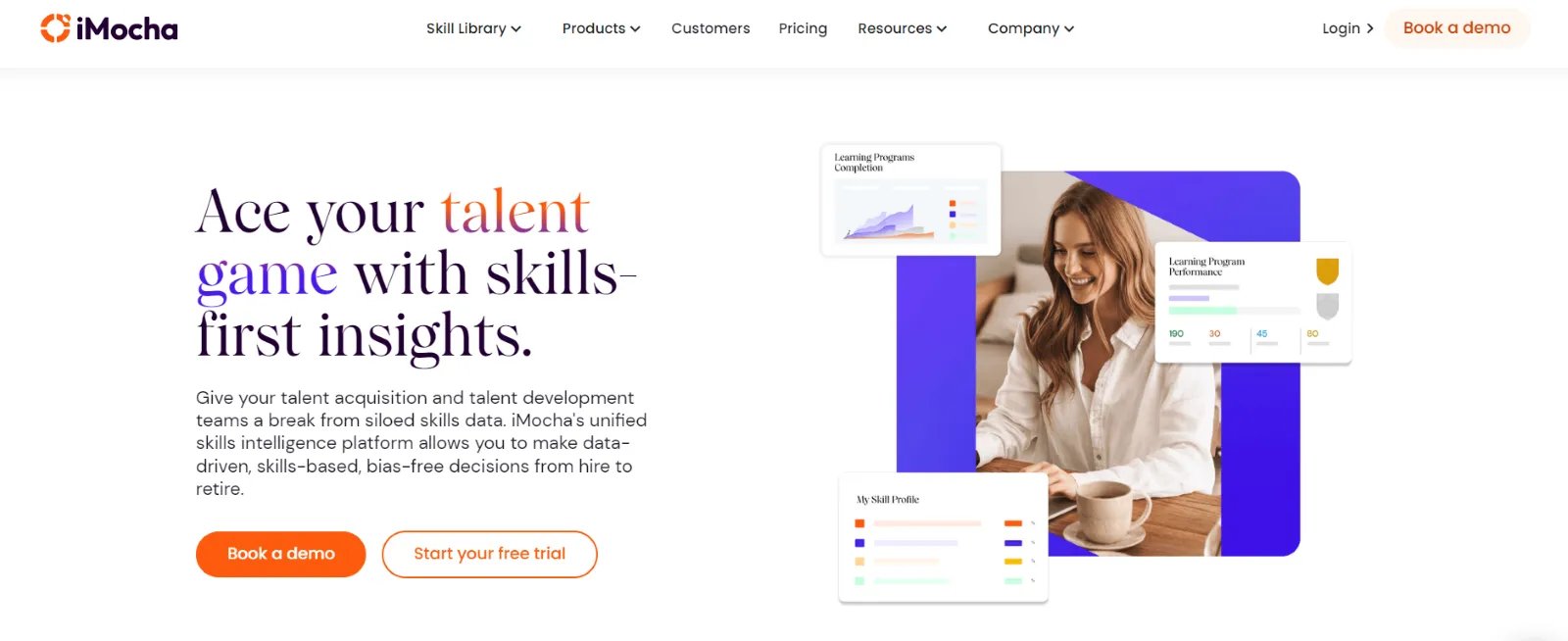 To resolve enterprise recruitment challenges, talent leaders and hiring managers are moving to automated screening processes. iMocha’s enterprise recruitment tool makes hiring processes more manageable and efficient with the ability to evaluate candidates before hiring. With the world’s most extensive skills library, iMocha helps organizations build winning teams.
To resolve enterprise recruitment challenges, talent leaders and hiring managers are moving to automated screening processes. iMocha’s enterprise recruitment tool makes hiring processes more manageable and efficient with the ability to evaluate candidates before hiring. With the world’s most extensive skills library, iMocha helps organizations build winning teams.
This platform offers tremendous capabilities to speed up hiring processes by identifying your needs and interviewing at scale. To transform enterprise hiring, iMocha offers automated resume screenings, async interviews, assessments, AI simulators, and in-depth talent insights.
With iMocha’s job-role-based assessments, recruiters and hiring managers can assess a candidate’s skills proficiency. In short, this platform enables recruiting teams to fast-track enterprise talent acquisition while saving 40% time hiring candidates.
Top features:
- 2500+ skill assessments
- Ready job-role tests
- Live coding interview
- Scalable campus recruitment offerings to engage, assess, interview, and hire
- AI-LogicBox to assess skills for language such as SAP, UI Path, and more for whom online coding compilers are not available
- Smart Proctoring that includes audio, video, IP, image proctoring, and a number of other offerings
- 35+ coding languages
- Integration with top legacy ATS
ATS (Applicant tracking systems) software
1. Greenhouse
Like many other ATSs, Greenhouse ticks all the necessary boxes to improve your hiring workflow; it is an all-in-one recruiting solution that offers one of the best overall applicants tracking systems (ATSs) on the market. This software is a highly customizable ATS platform and is considered one of the leading recruiting tools for growing or scaling teams.
2. Lever
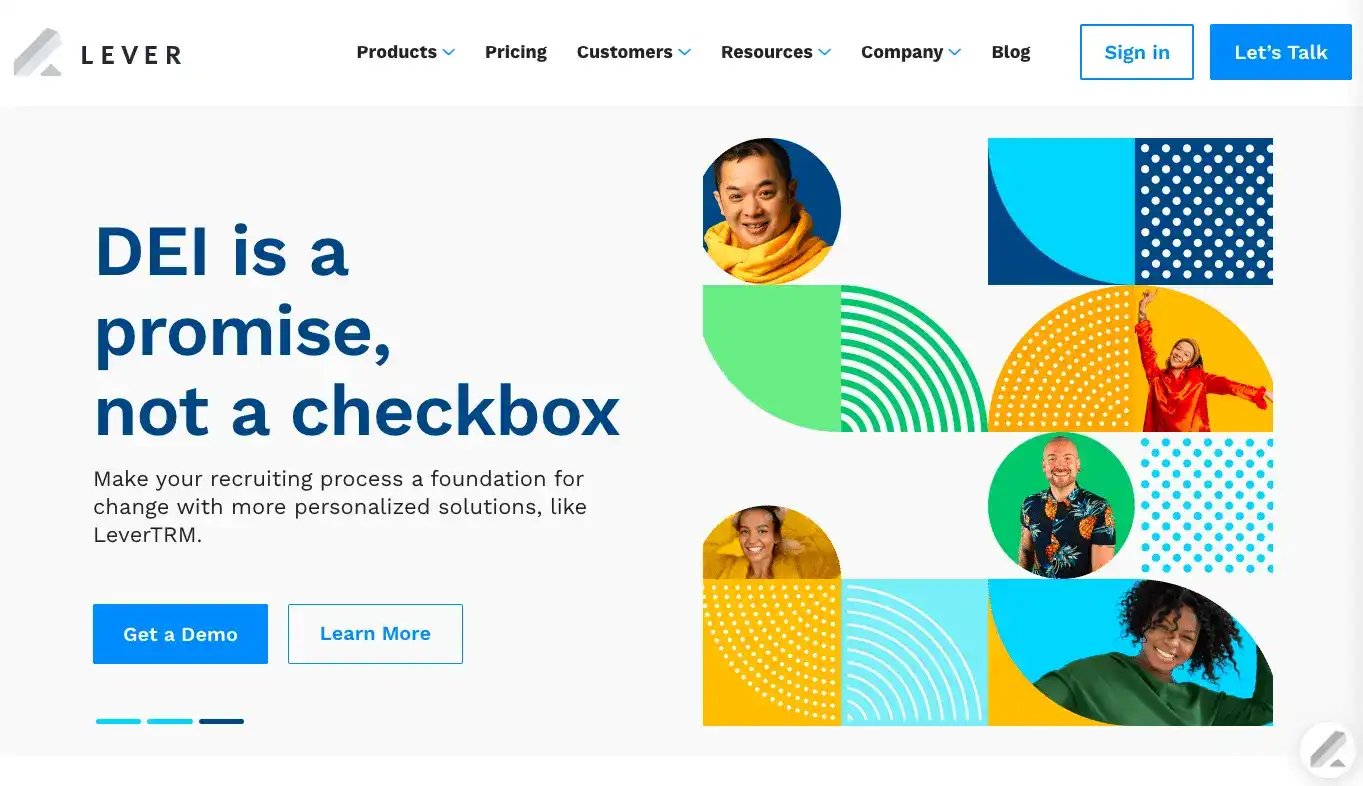
This ATS platform enables enterprises to automatically set up entire candidate nurture campaigns to keep them engaged throughout the process. Lever offers a simple interface and robust reporting features. Because of its easy-to-use interface, collaborating with hiring managers is like a breeze, especially if you’re hiring for many Marketing and Sales roles.
Onboarding software
1. ClearCompany
ClearCompany is a leading onboarding platform designed to help large enterprises to attract, screen, engage, and retain the best talent. To do this, it provides a wide range of features such as applicant tracking, employee onboarding, performance management, etc.
With ClearCompany, you can access a host of interview and candidate evaluation features to ensure that you shortlist only the best candidates. Finally, it offers an excellent onboarding experience that helps enterprises leave a lasting impression.
2. Rocketlane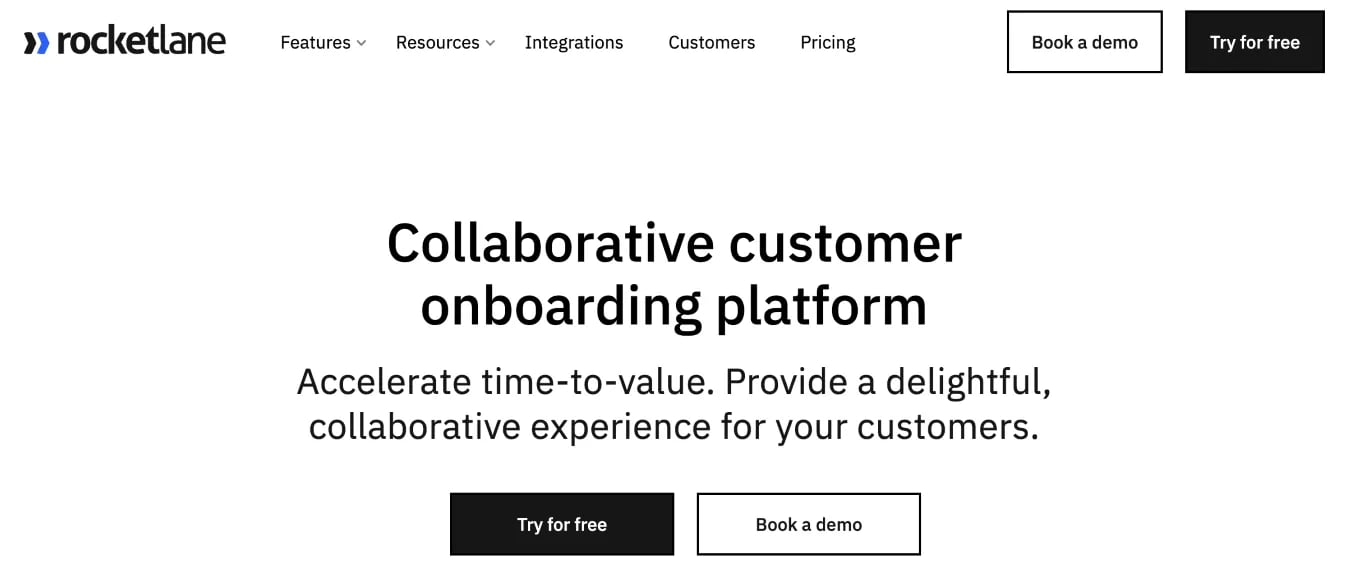
This software helps to accelerate and streamline candidate onboarding. The all-in-one platform lets you easily collaborate with candidates and deliver projects consistently, transparently, and delightfully. Rocketlane also automates repetitive tasks and identifies patterns to drive execution strategy.
CRM (Candidate relationship management) software
1. Beamery
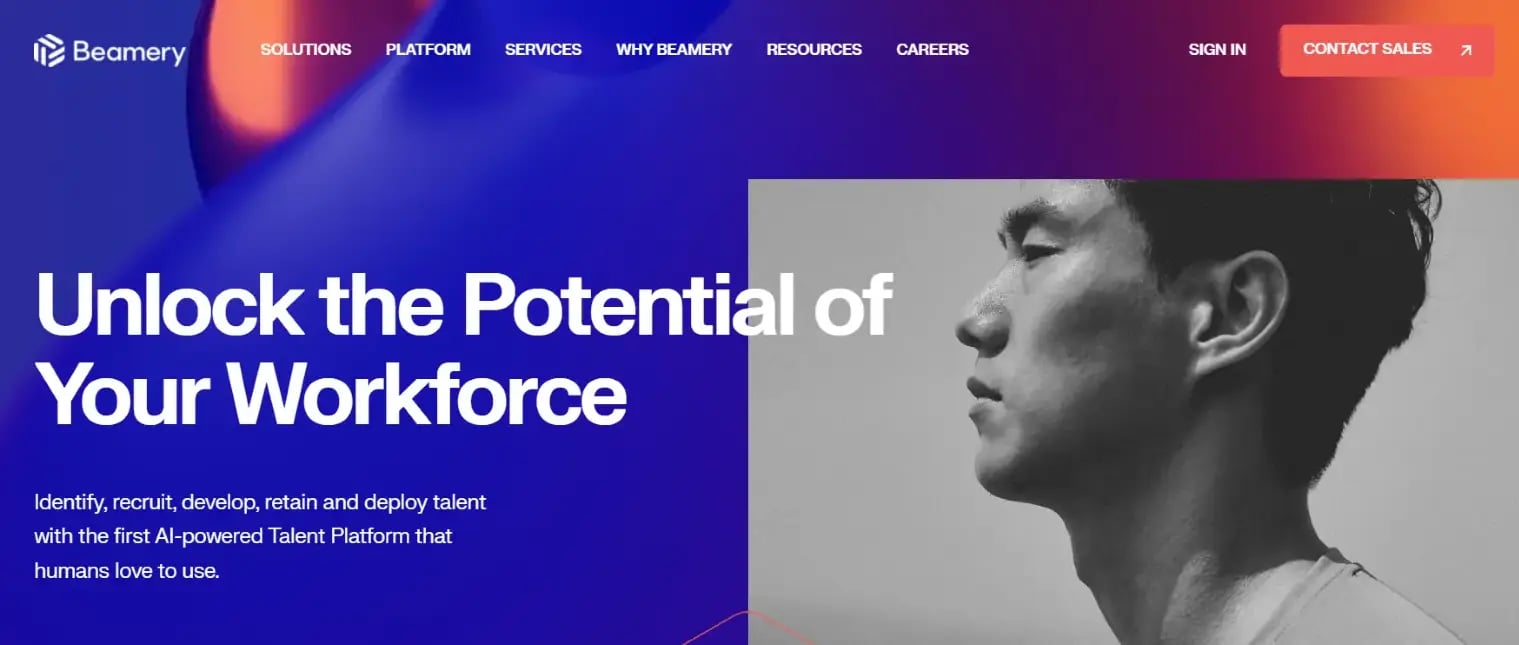
Beamery is a talent engagement platform that offers CRM, talent marketing, and automated compliance. It enables recruiters and hiring managers to attract, identify and engage candidates all on one platform. This platform is integrated with SAP SuccessFactors Recruiting, delivers a solid foundation of talent data to help enterprises adapt quickly to changing talent needs.
2. TalentLyft
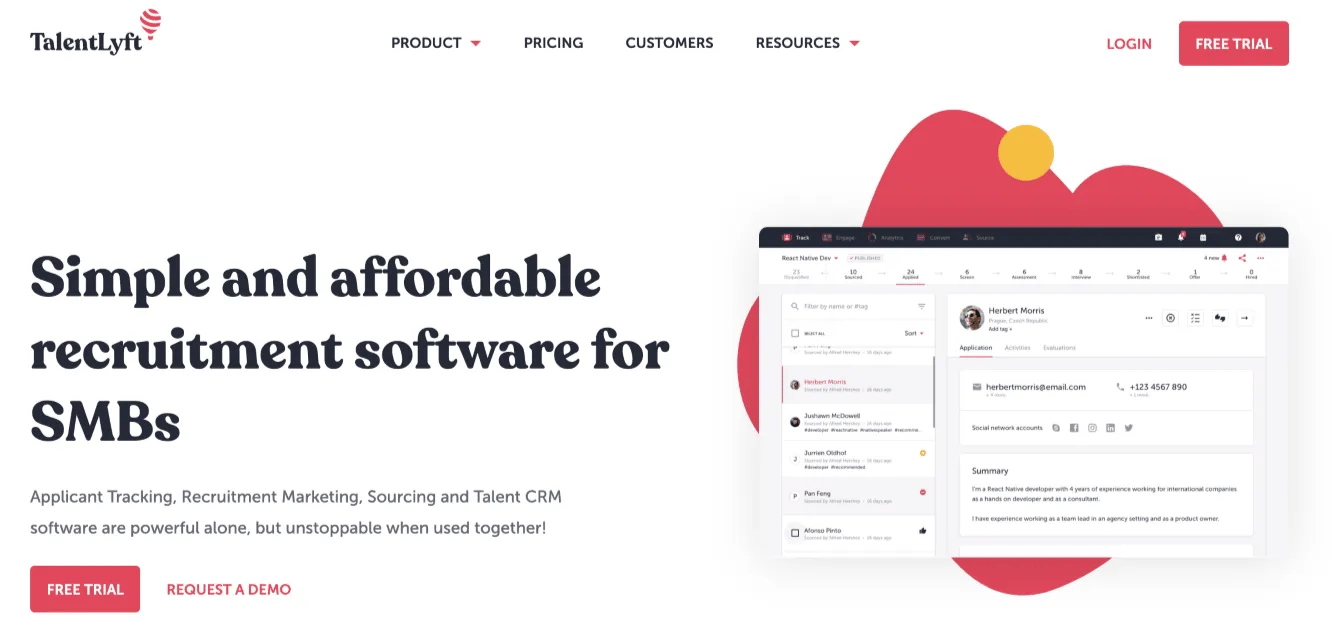
TalentLyft offers applicant tracking, talent CRM, and sourcing that is easy, contemporary, and powerful. This platform aims to automate manual recruitment. Its sourcing technology helps organizations hire top talent using AI technology, employee referrals, social media recruitment, and integration with job boards.
Want more tools to streamline hiring processes? Check out Top 15 Enterprise Recruitment Software
Conclusion
Like everything else, enterprise recruitment strategies have evolved over the years. This has increased the need for businesses to invest in the right recruitment tools so that recruiting teams can continue functioning without limitations.
Hence, it is imperative to take the proper steps to make recruitment operations innovative and efficient in every part of the organization. Adopting the latest technologies will enable you to hire better, faster, and go further than your competitors.
FAQ Reference
What is the enterprise recruitment process?
Enterprise Recruitment is a core function of the talent acquisition and HR department. This process includes attracting, identifying, screening, shortlisting, interviewing, hiring, and onboarding employees.
Big companies often want to attract the best talent and secure the best hires. That is why they need a seamless and effective recruitment process to help seamlessly identify and hire suitable candidates. Today, many large enterprises use recruitment software to make recruitment more efficient and effective.
What is the biggest challenge in enterprise recruitment?
Enterprise Recruiting today is a challenge, indeed! It’s getting more so with leaner recruitment processes – but with the same expected results. Here are some of the most common recruitment challenges you might face in your enterprise.
- Decentralized recruitment processes
- No proper workforce planning
- Recruiting in competitive markets
- Lacking visibility into organizational changing processes
- High-volume recruiting needs
- Lack of candidate experience
|
Looking for a centralized platform to track the progress of the recruitment process and make data-driven decisions? Try iMocha! |

